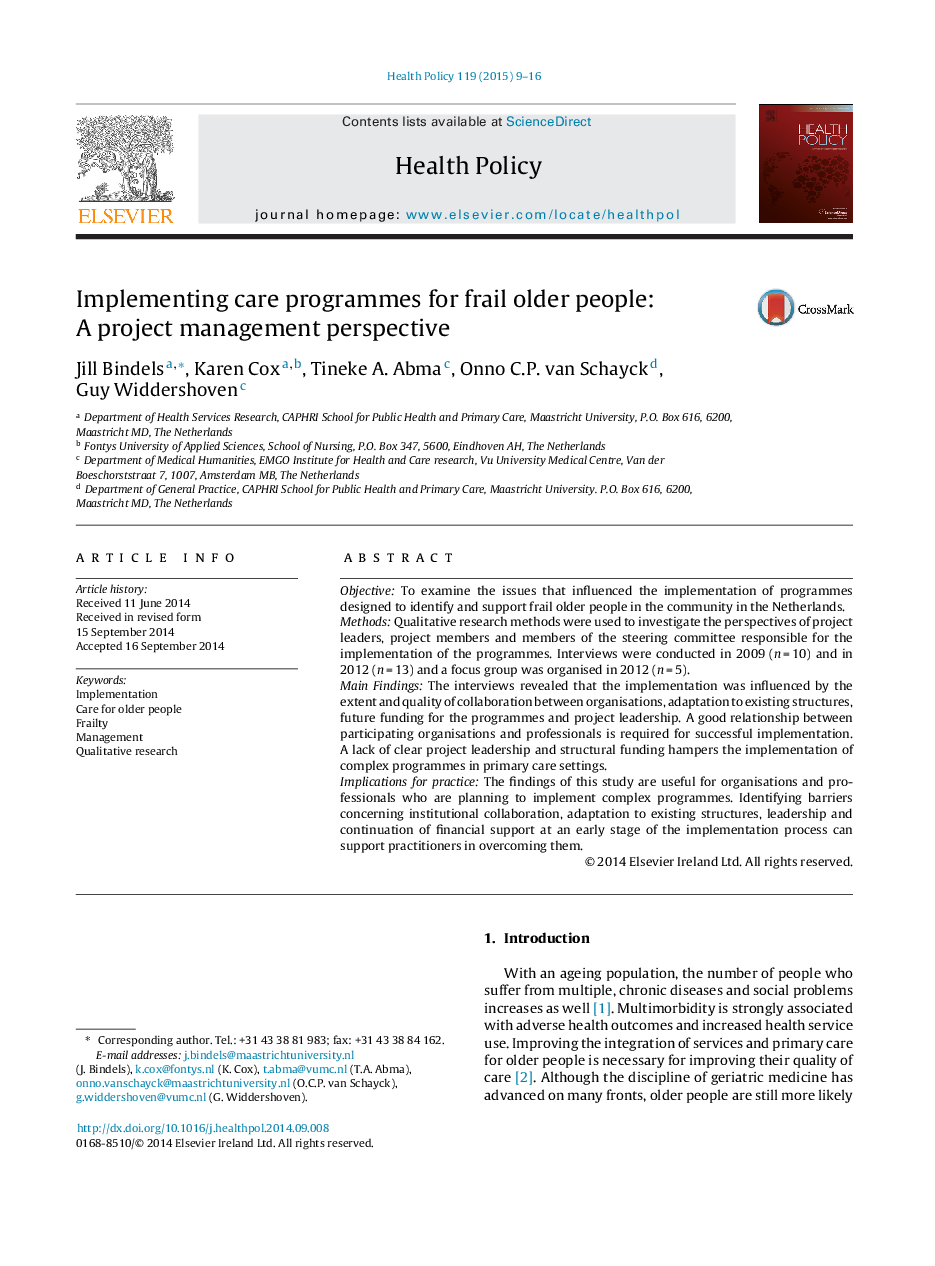| Article ID | Journal | Published Year | Pages | File Type |
|---|---|---|---|---|
| 4197786 | Health Policy | 2015 | 8 Pages |
•Collaboration is a requirement in the implementation of complex interventions.•Barriers concerning project leadership and financial structures can hamper implementation of complex interventions.•Sharing responsibilities with multiple individuals can foster the creation of effective leadership.•Identifying barriers at an early stage of the implementation process can enhance implementation.
ObjectiveTo examine the issues that influenced the implementation of programmes designed to identify and support frail older people in the community in the Netherlands.MethodsQualitative research methods were used to investigate the perspectives of project leaders, project members and members of the steering committee responsible for the implementation of the programmes. Interviews were conducted in 2009 (n = 10) and in 2012 (n = 13) and a focus group was organised in 2012 (n = 5).Main FindingsThe interviews revealed that the implementation was influenced by the extent and quality of collaboration between organisations, adaptation to existing structures, future funding for the programmes and project leadership. A good relationship between participating organisations and professionals is required for successful implementation. A lack of clear project leadership and structural funding hampers the implementation of complex programmes in primary care settings.Implications for practiceThe findings of this study are useful for organisations and professionals who are planning to implement complex programmes. Identifying barriers concerning institutional collaboration, adaptation to existing structures, leadership and continuation of financial support at an early stage of the implementation process can support practitioners in overcoming them.
